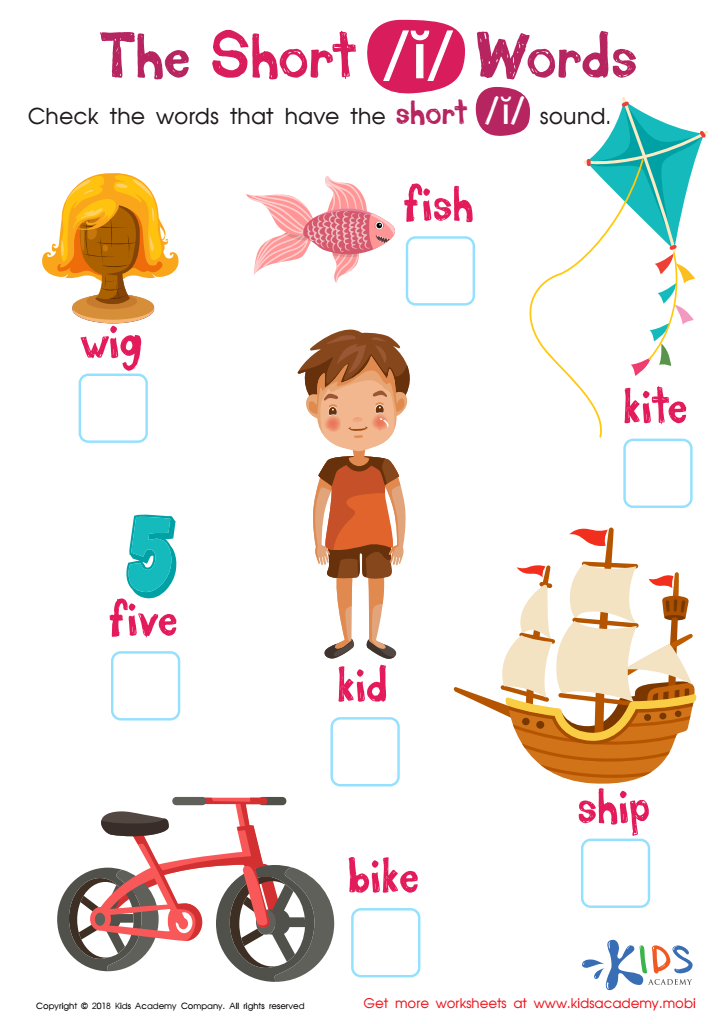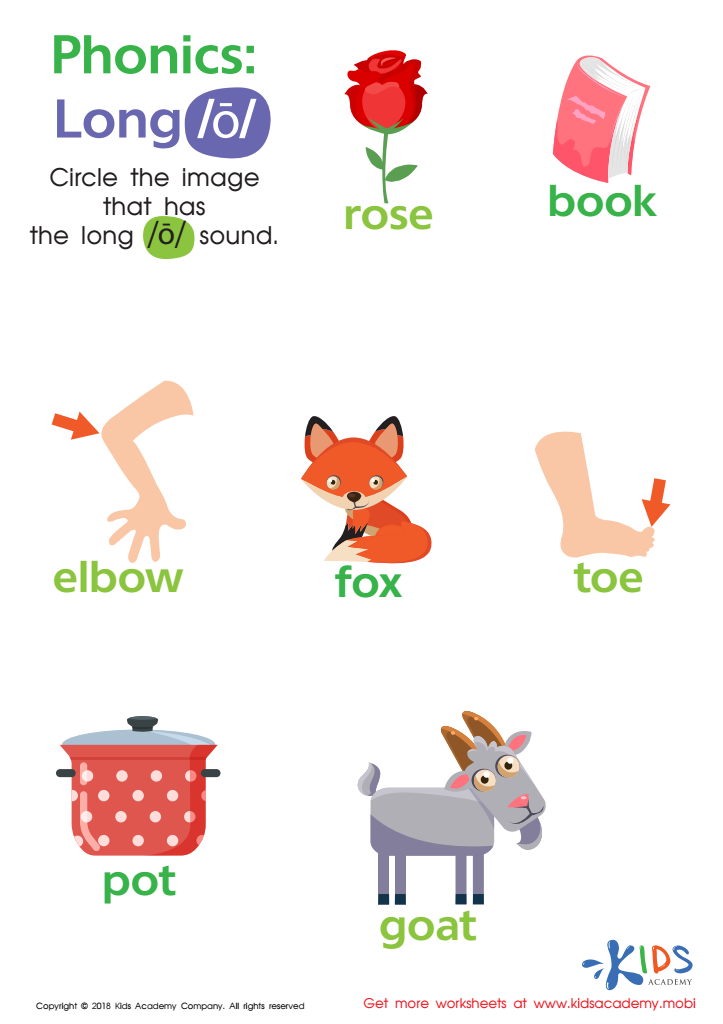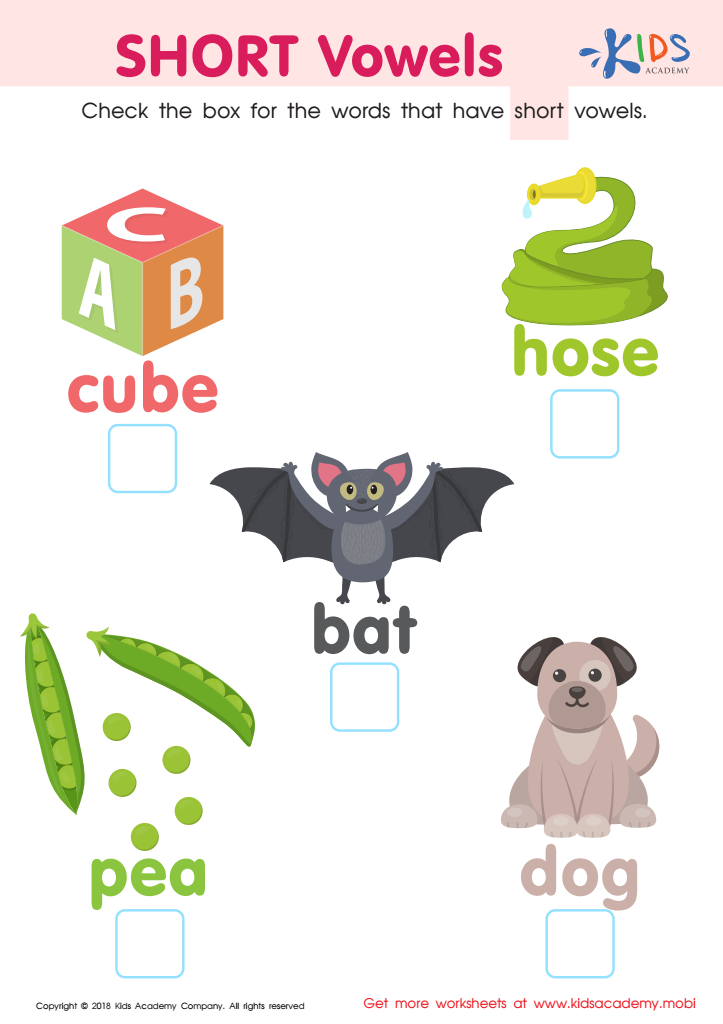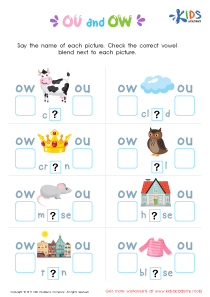Vocabulary enhancement Normal Long And Short Vowel Worksheets for Ages 4-5
3 filtered results
-
From - To
Boost your child’s reading skills with our "Vocabulary Enhancement Normal Long and Short Vowel Worksheets for Ages 4-5". These engaging worksheets are designed to help young learners differentiate between long and short vowel sounds while expanding their vocabulary. Ideal for children aged 4-5, each worksheet features fun activities including matching, tracing, and sound recognition exercises that foster early literacy development. Perfect for both classroom and home use, our worksheets provide a solid foundation for reading fluency and language skills essential for future academic success. Equip your little ones with the tools they need to excel in their early educational journey!


The Short I Words Reading Worksheet


Phonics Long O Reading Worksheet


short vowels Worksheet
Vocabulary enhancement, particularly understanding normal, long, and short vowels, is crucial for children ages 4-5 as it lays a vital foundation for literacy and language development. During these formative years, children's brains experience rapid growth, making it an optimal time to instill fundamental language skills. Mastery of vowel sounds helps children decode words more effectively and boosts their ability to read fluently.
For instance, knowing the difference between long and short vowel sounds can clarify word meanings and improve pronunciation, hence reducing confusion. By understanding these components, children can better grasp spelling patterns and the structures of words, which are essential skills for writing. This, in turn, contributes to higher overall academic achievement.
Additionally, vocabulary enhancement through vowel education sharpens listening skills, enabling children to recognize and produce sounds accurately. This auditory discrimination is crucial for effective communication and understanding spoken language. Moreover, a rich vocabulary and strong phonemic awareness foster confidence and engagement in learning, making reading a fun and rewarding activity.
Parents and teachers play a pivotal role in guiding this development through interactive games, storytelling, and phonics exercises. Encouraging these skills early helps build a robust educational foundation that benefits children throughout their lives.
 Assign to My Students
Assign to My Students











